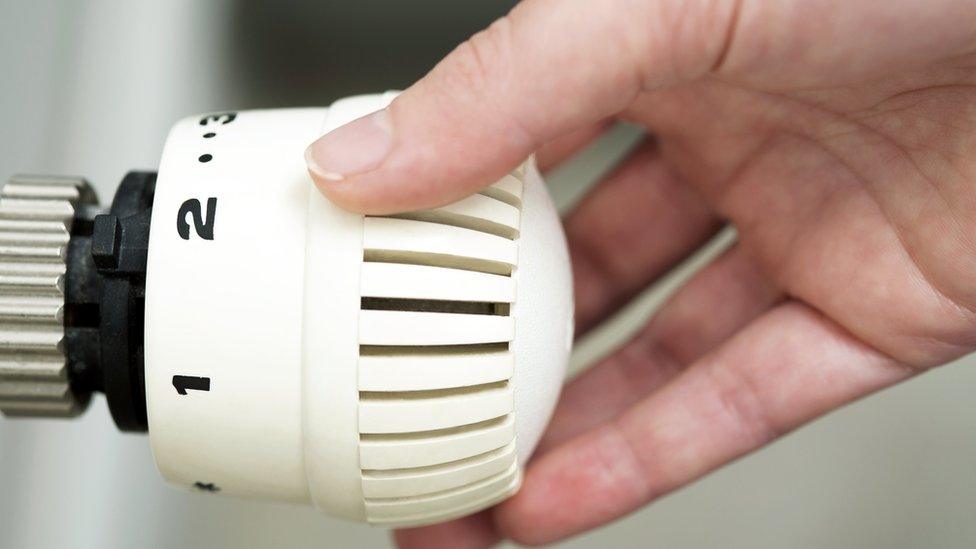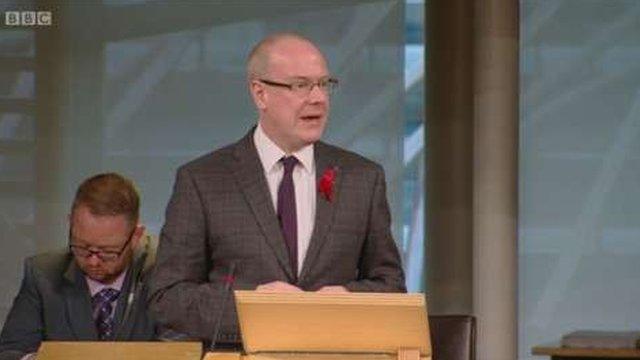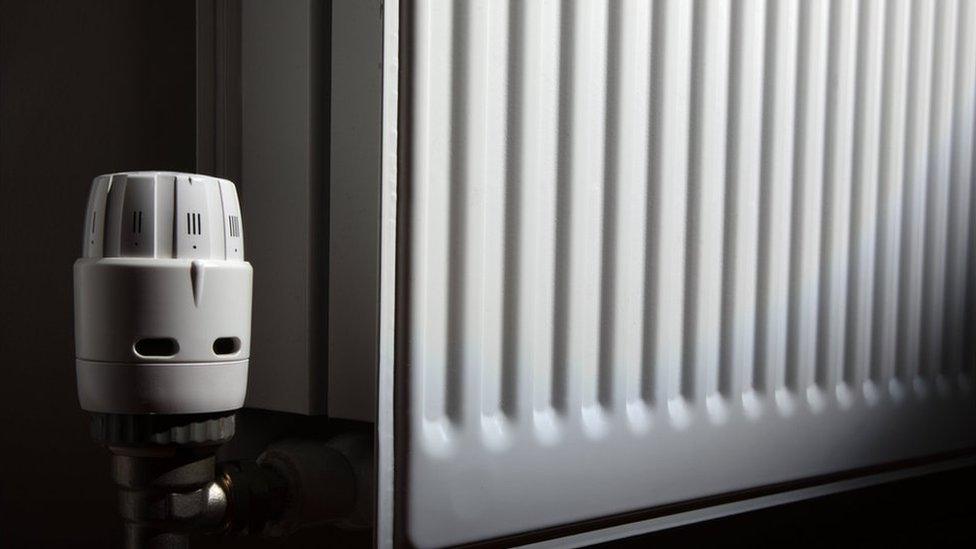Extra £10m to be spent on tackling fuel poverty
- Published

An extra £10m is to be spent on tackling fuel poverty after the Scottish government failed to meet its pledge to eradicate the problem.
Ministers were recently criticised after research indicated fuel poverty levels had more than doubled since 2003.
The government intended to get rid of fuel poverty by 2016.
Councils and housing associations will receive a share of £9m to make it easier for tenants to heat their homes.
Housing Minister Kevin Stewart said a further £1m was being made available to provide interest-free loans to help people make their home more energy efficient.
Work is also being carried out to develop Scotland's Energy Efficiency Programme (Seep), with 11 pilot projects being set up to test different ways of saving energy.
'Vulnerable households'
Researchers recently found fuel poverty, currently defined as households spending 10% of income on heating, affected about 35% of Scottish homes.
The level has remained steady since 2009.
Mr Stewart said: "Everyone deserves a safe and warm place to call home. And that is why tackling fuel poverty is a priority, for me and for this government.

Housing Minister Kevin Stewart said tackling fuel poverty was a priority for the Scottish government
"I'm delighted that this week a further £9m is going out to councils and social housing associations to ensure some of Scotland's most vulnerable households are able to heat their homes. This means we are spending £113m this year alone tackling fuel poverty directly.
"I am also pleased to be announcing a further £1m investment in our interest-free loan scheme which will increase the number of people able to access help to install energy efficiency measures."
He added: "Over the next four years we are making half a billion pounds available to tackle fuel poverty and improve energy efficiency. This means, by the end of 2021, we will have committed more than £1bn to making our homes and buildings warmer and cheaper to heat."
Definition 'too broad'
The Scottish government plans to commission an independent academic review to consider narrowing the definition of fuel poverty and setting a new target, following a report by the Scottish Fuel Poverty Strategic Working Group, external which found the existing definition was "too broad".
"It is absolutely vital we make sure the action we are taking makes a difference to those who need it most," Mr Stewart said.
He made the announcement at the Energy Action Scotland's Fuel Poverty Matters national conference in Clydebank.
Liberal Democrat energy spokesman Liam McArthur said: "With around 850,000 households estimated to be in fuel poverty, the scale of the challenge we face in tackling this problem is significant.
"Any funding to help meet that challenge is welcome, but today's announcement seems like a patch-up job after ministers raided the fuel poverty budget to the tune of £16m earlier in the year.
"Families across Scotland, particularly in rural and island communities, have not forgotten that cash grab. They will rightly question whether the minister is showing anything like the necessary ambition or investment to address the problem."
'Bold legislation'
Green housing spokesman Andy Wightman said: "All parties in the current parliament made election commitments to warm homes, so ministers must seize this opportunity to bring forward bold legislation to start to end fuel poverty, particularly in rural areas."
Norman Kerr, director of Energy Action Scotland, said: "Our network has a wealth of knowledge and experience about what is happening on the ground in order to turn cold, damp houses into warm, dry homes.
"This conference aims to help support plans for ending the blight of fuel poverty in Scotland."
Opposition politicians and housing charities had criticised the government's "unacceptable" performance on fuel poverty and called for increased action, while Labour said the SNP had "failed to get a grip" on the issue.
- Published24 October 2016
